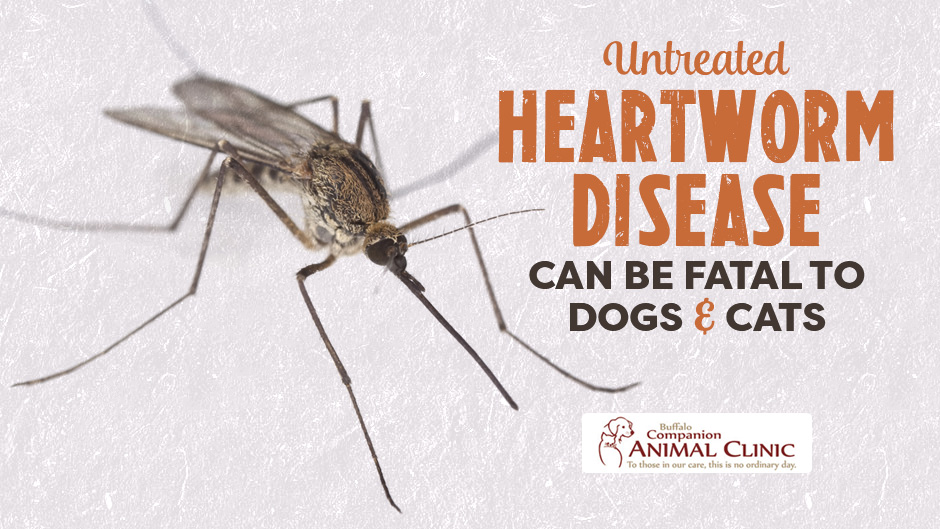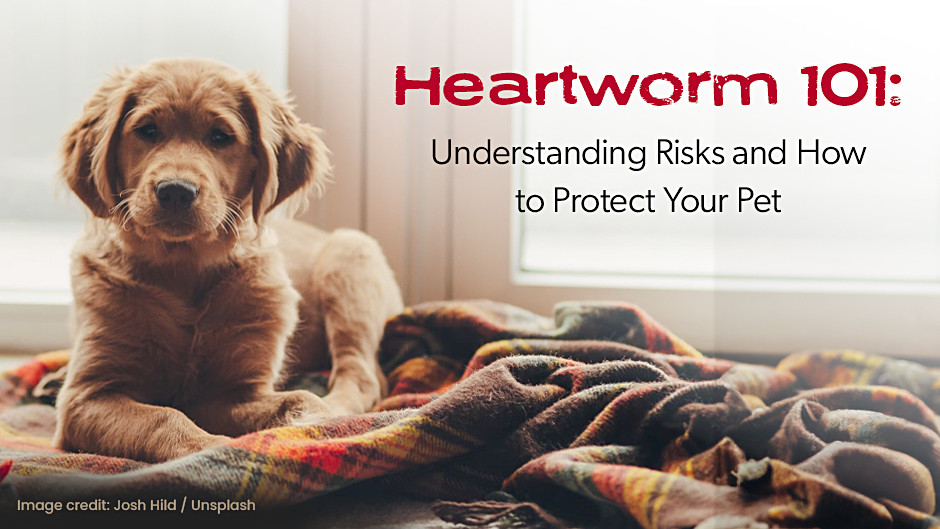Pet Health Articles
Untreated Heartworm Disease Can Be Fatal to Dogs and Cats

If it seems like you shouldn't have to think about heartworm protection this time of year, we pets feel the same way. I will let you in on a little secret, though. We may act like we don't appreciate what you do to keep us safe from this nasty parasite, but we really do. We even understand that heartworm protection doesn't take a season off.
Thank you,
Carlos
Infected mosquitos transmit heartworm disease to dogs and cats through a single bite. Unfortunately, the heartworm parasite can live up to five years inside the host animal’s body and grow to a length of one foot. They can also reproduce at an extremely fast rate. When the larvae mature, they live inside the right heart ventricle or the pulmonary arteries of your pet. They enter your dog or cat’s right atrium when so many are present that there isn’t enough room for all of them. Severe heartworm infestation can cause your pet to collapse and die.
Symptoms and Prevention of Heartworm Disease
Please contact us at Buffalo Companion Animal Hospital right away if your pet displays any of the following symptoms:
• Loss of appetite
• Loss of weight
• Cough that doesn’t go away
• Vomiting
• Lack of energy
• Fatigue that doesn’t improve with rest or seem to be caused by exertion
It's important to note that some dogs and cats don’t give any indication that they’re infected with heartworm. By the time you suspect something, it may be too late for treatment to be effective. As dire as this sounds, heartworm disease is entirely preventable. Many products are on the market just for the prevention of heartworm, which can make it challenging to choose the most effective one for your pet. Our veterinarians are happy to make a recommendation upon request.
How Heartworm Disease Manifests Differently in Cats
Heartworm disease occurs less often in cats, but it tends to be more serious due to their smaller size. Sometimes it only takes one worm for a cat to have serious health consequences. They may display shortness of breath and coughing fits or no symptoms at all. A diagnosis of heartworm disease is more challenging to arrive at in cats because we must conduct several blood tests to ensure the symptoms aren’t due to another health condition. Our veterinarians will tailor your cat’s treatment approach to her age, general health, and the number of worms present.
Treatment for Dogs
Once we have confirmed a positive heartworm diagnosis for your dog, you must restrict his exercise as much as possible. This can be difficult, especially for very active dogs. However, exercise increases the amount of damage heartworms can do to your dog’s heart and lungs. Once he has stabilized, we will begin a treatment plan based on his individual factors. This typically includes medication for heartworm prevention.
Please don’t hesitate to contact us if you have additional concerns about heartworm disease. We strongly encourage you to give your pet a prevention product all year long.
Photo Credit: Henrik_L / Getty Images






